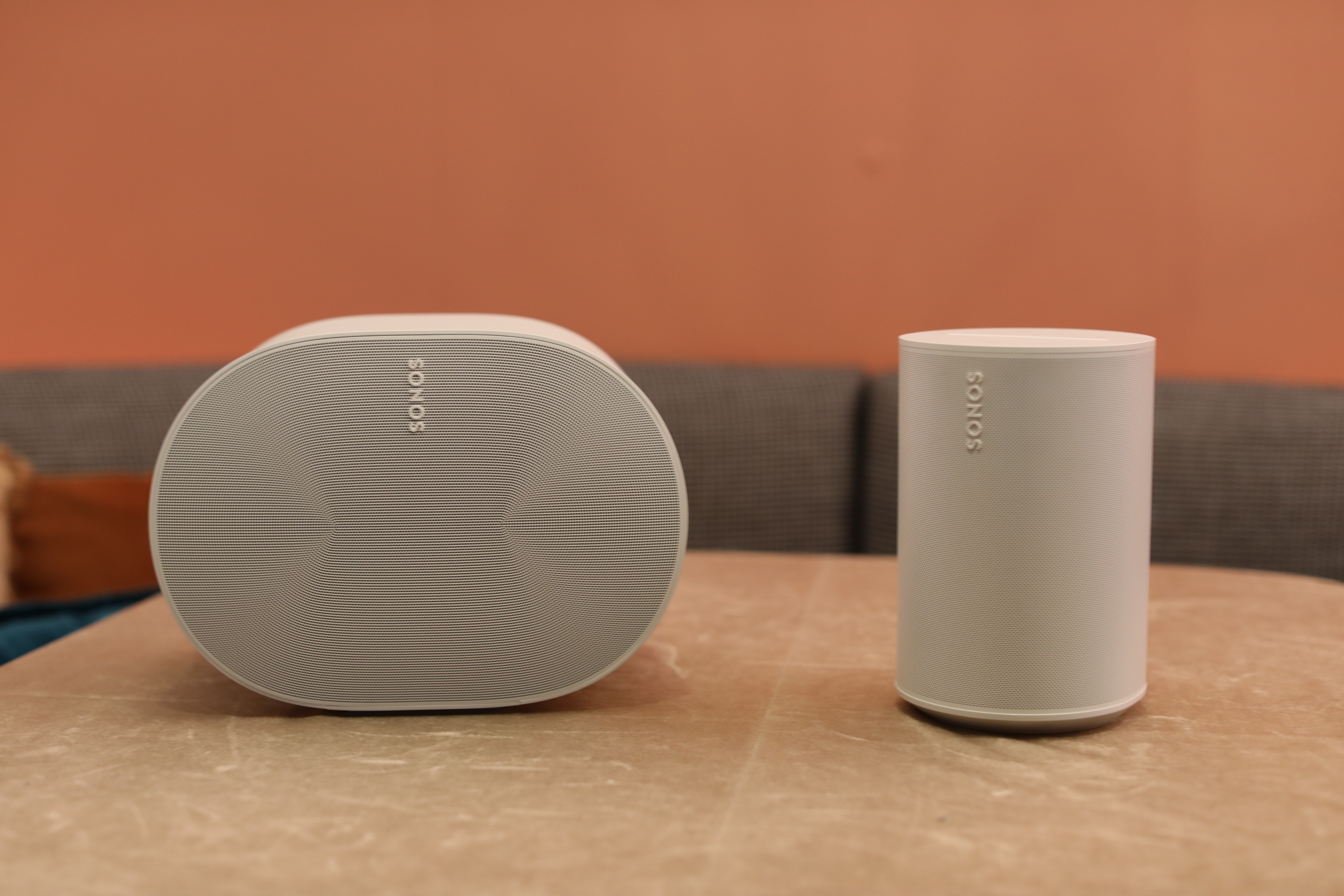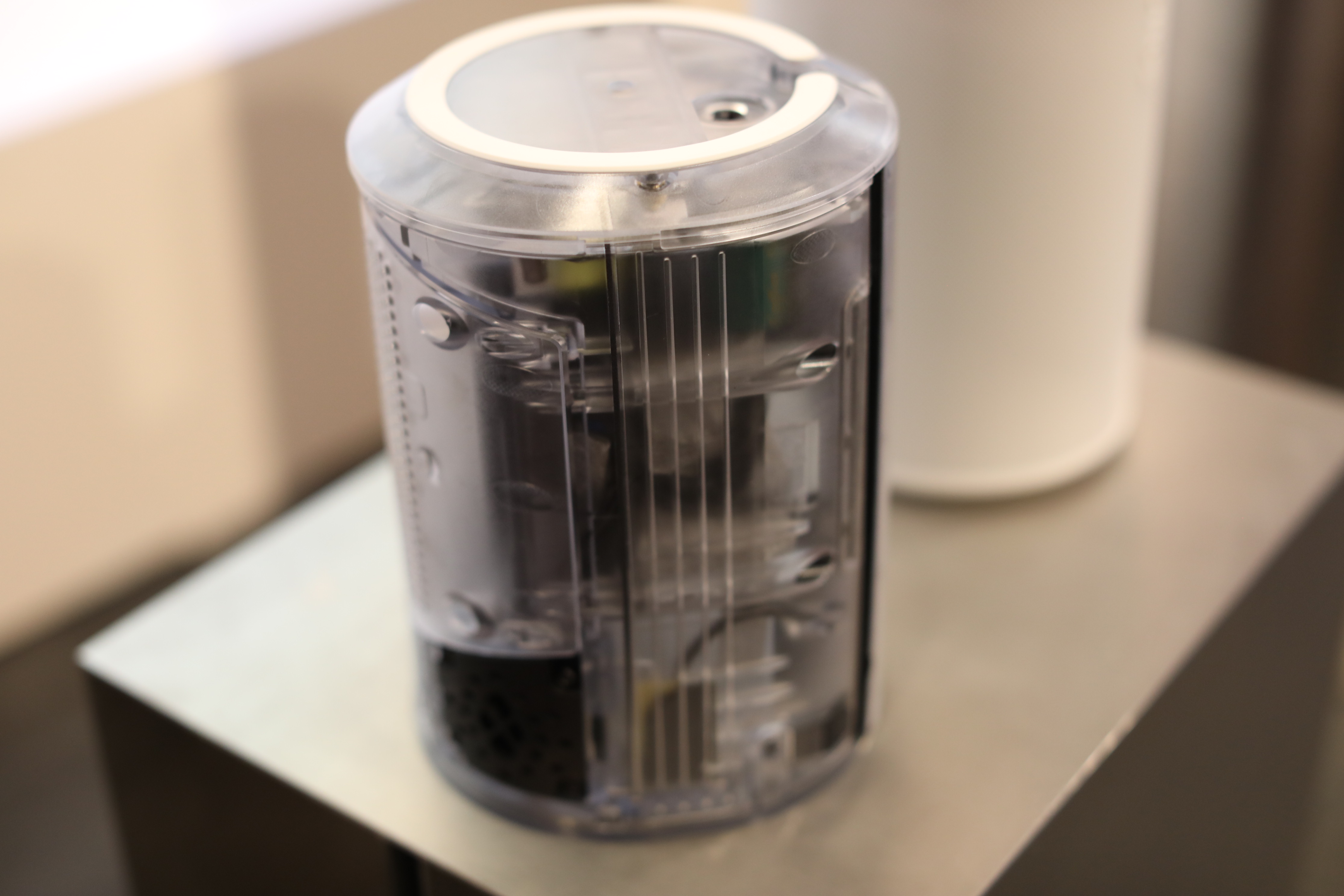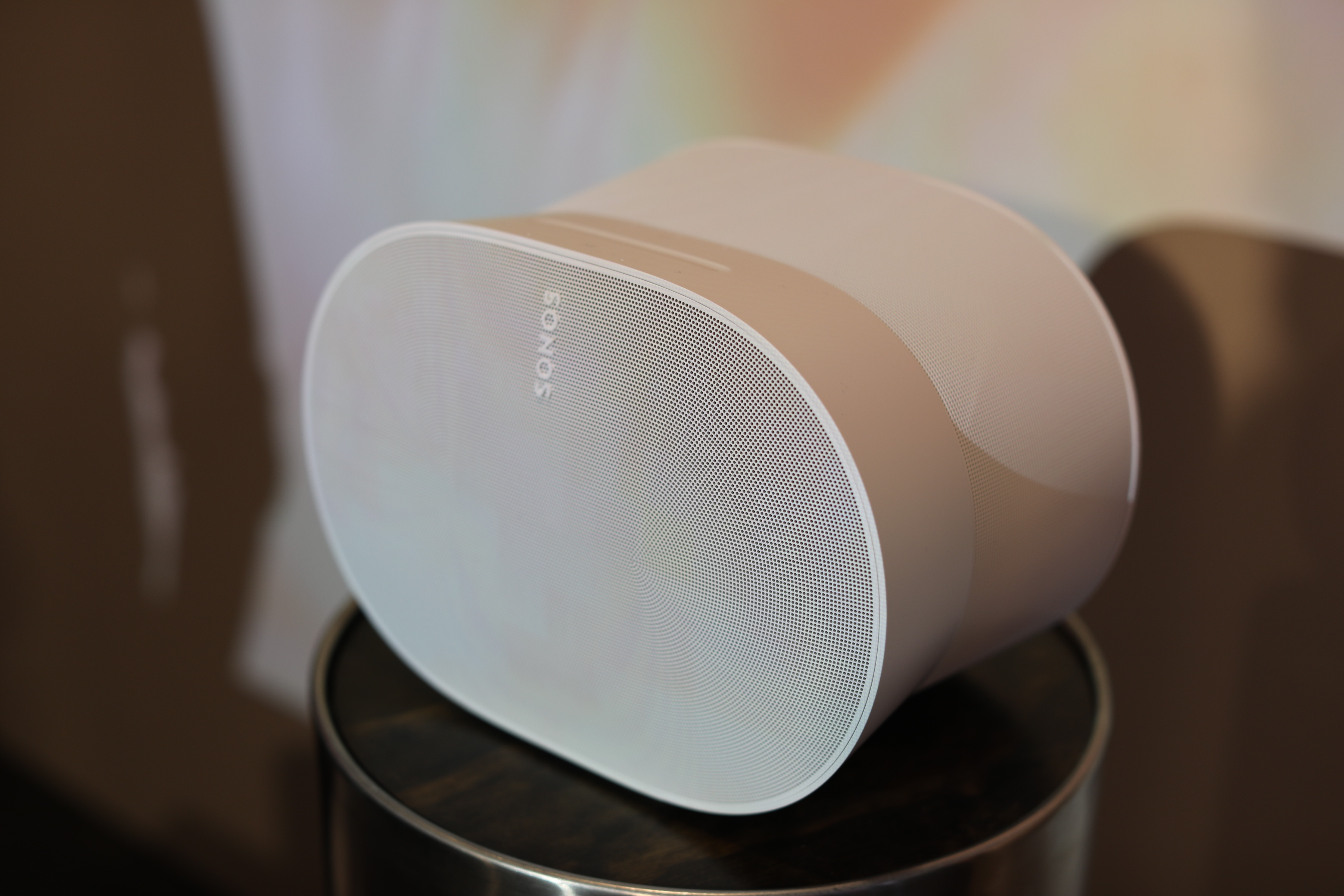This morning Sonos announced a pair of speakers. The Era 100 is a $249 stereo system that replaces the popular One speaker in the company’s lineup. The $449 Era 300, on the other hand, is an entirely new entry, focused on bringing the emerging world of spatial audio to the product line.
We had the opportunity to demo the upcoming products at a press event in New York City a few weeks back. After seeing how the speakers work, we sat down with Patrick Spence, who marked five years as CEO back in January. We discussed the emergence of spatial audio, the state of the smart home, and how a seemingly endless stream of lawsuits between Sonos and Google impact its day to day.

TC: You have to make a choice between Spatial Audio and stereo. These couldn’t accommodate both?
PS: Not with the waveforms, all of the amps and everything we would need in it.
It’s a component constraint?
And design. Also a space issue. You see how big the 300 is, and what we could pack into it to get to room filling spatial. Right now, trying to do that for a product that size would not get us to what we want. We’re kind of at the forefront of where spatial is. So, it’s like, how do you create, starting from scratch, the best product to really celebrate spatial? We felt with this product, since it’s really been a mono product, that we could do stereo and really up its level of quality and sound.
I don’t know how many years it will take, as we move from stereo to spatial. I’m confident that it will happen, but it’s not going to happen overnight. For those who really want to feel the music and get into Spatial, we’ve got the Era 300. For many people who maybe aren’t there yet, in terms of getting on the spatial bandwagon, and they’re also balancing costs, we’ve got the 100, which I think is a great-sounding speaker. It gives you an immersive feeling. It doesn’t get you to the spatial level, but it’s great.
Does spatial audio have a branding problem? For many people, it’s associated with the headphone headtracking technology that’s setting the stage for AR.
This is totally different. And I think a couple of things have happened. One is, as you’ve experienced [the speaker], it’s different than a headphone experience, where you’re moving your head and maybe you’ve got the screen over here. There are some things that I think have delighted people but also freaked out some people, in terms of that experience with headphones. It’s a little bit more gimmicky. Spatial outloud is really about filling the room and making you feel like you’re at the center of it. The right use of spatial is really outloud, versus headphones.
I also think, as recording engineers and artists started to learn what Spatial is all about, some of the early mixes weren’t great, in terms of missing things like vocals or missing a center. People will have tried that and not had a great experience. I would encourage those people to give it another listen.

You alluded to it still being a ways off, in terms of mainstream adoption. What kind of timeframe are we talking about here?
Mono to stereo took five to 10 years.
We have a dramatically different market than we did in the ’50s.
It’s a good point. Things happen faster than they used to. But still, maybe this is something that’s still going to take a few years before it’s in everything, before it becomes the standard.
So for now the Era 300 is something of a niche device.
It’s our goal to bring spatial audio outloud to the masses, and I do think this is the product to do it. And I think we’re the company to do it. I think it’s at the time where you’re seeing the streaming companies, the labels and the artists really get behind it, so I do think it’s a tipping point for spatial. But you’re right, that it’s not going to be the majority of our sales this year. So I think that’s a fair statement. But the majority of music is now being released in it. That’s always the precursor, just like 4K video. The content needs to be produced in it.
How much did looming right-to-repair legislation impact your focus on repairability?
We factor in everything. But I would say that our team has been on this for a long time, in terms of being the right thing to do. Also, I think we’re learning. When we were first bringing out our products 20 years ago, we were like, “How do you build these things so they’ll make the sound you want?” So we had to use things like adhesives. We’ve been able to come up with ways and inventions that allow us to disassemble these products. It comes into our thinking more broadly about what we’re building and how you live up to the law of the land, but even before that, we were already starting to use recycled materials. We were already starting to use things that allow it to be more easily repaired.
Has the company’s approach to pricing changed at all? You’re a premium company, but almost exclusively offering premium products potentially limits customers.
I don’t know that it is, in the sense that, did Apple selling $1,000 phone limit the number of people that they can get to?

I think there are a lot people buying $400 phones because it’s what they can afford.
Sure, of course. But you have to choose where to play, but for us to deliver the kind of experiences that we want and invest in the software and updates, systems, people and innovation for the future, we’ve found a model that works for us. Typically we’ve been trying to grow in the 10%–15% per year. Given what I saw at BlackBerry, I do think that growth can outstrip you and cause issues, and then you end up like much of tech right now, in terms of layoffs and all these things.
I see a lot of layoffs hitting things like Amazon Alexa and Google Home/Nest. Is this a correction or trouble for the long-term? What does the smart home look like, going forward?
We’ve been in smart home IoT since the beginning. There has always been something new coming up, but we’re always wondering if it’s really in service of the customer. You probably heard forever — there are those control systems at restaurants — and that’s going to be the thing because they want to control everything, and everyone wants one. What I see emerging, even for those homes that can spend as much as they want to on home systems, they’re using Sonos for audio, they’ve got something for security, they got something for HVAC and they’ve got something for lights. People seem happy with purpose-built apps for things that matter in the smart home.
There have been a lot of lawsuits back and forth with Google. Nobody wants to be in a position of suing another company. Do these sorts of battles have a tendency to limit innovation?
One of the biggest things on my mind is how not to distract the organization. You have two things. One, you have to stand up for what you’ve invented. And I have a duty to the 1,800 people at Sonos to do that. At the same time, you have to keep innovating. You have to keep moving forward. What I’ve done is keep a really tight circle around those people involved in the litigation. So it doesn’t take much of my tongue. [Chief legal officer Eddie Lazarus] and his team spent a lot of time on it, but our engineers don’t. They’re continuing to innovate and develop.
Samsung and Apple have had something similar, but it feels like a kind of cold war, volleying from one to the other.
Certainly I would point out that we’re 10-0 in terms of the efforts they’ve launched our way […] I think [volleying] is to be expected if you look at Google’s history of how they fight these things. We never wanted it to come to this, but we were forced to take this action and stand up for what we’ve invented. Now we’re going to see it through, because that’s the only way you can deal with a bully.































Comment